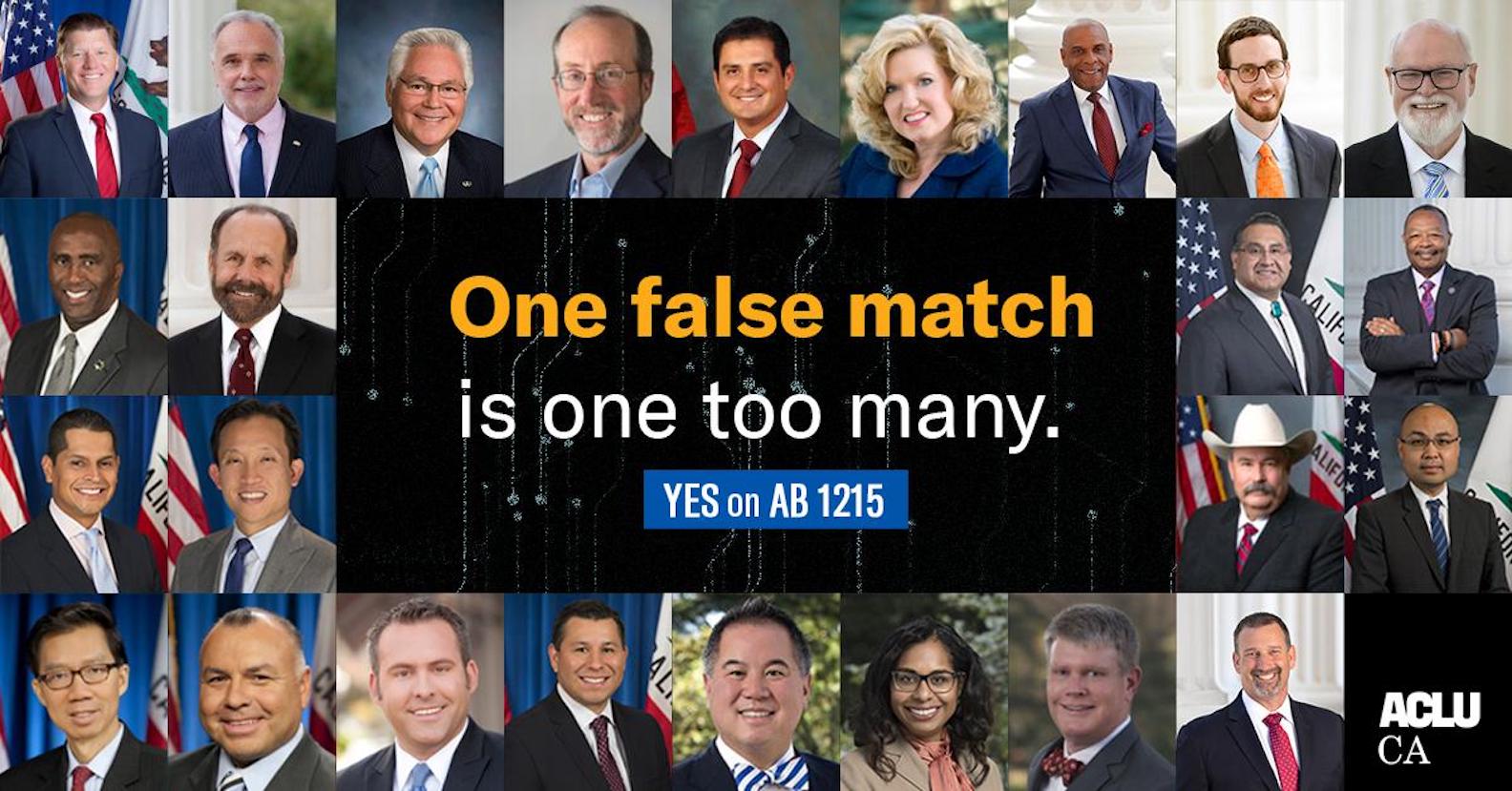Amazon’s Facial Recognition Misidentified 1 in 5 California Lawmakers as Criminals

Credit to Author: Madeleine Gregory| Date: Tue, 13 Aug 2019 18:52:42 +0000
In a recent test of Amazon’s facial recognition software, the American Civil Liberties Union of Northern California revealed that it mistook 26 California lawmakers as people arrested for crimes.
The ACLU used Rekognition, Amazon’s facial recognition software, to evaluate 120 photos of lawmakers against a database of 25,000 arrest photos, ACLU attorney Matt Cagle said at a press conference on Tuesday. One in five lawmaker photographs were falsely matched to mugshots, exposing the frailties of an emerging technology widely adopted by law enforcement. The ACLU used the default Rekognition settings, which match identity at 80 percent confidence, Cagle said.
Assemblymember Phil Ting was among those whose picture was falsely matched to an arrest photo. He’s also an active advocate for limiting facial recognition technology: in February, he introduced a bill, co-sponsored by the ACLU, that bans the use of facial recognition and other biometric surveillance on police-worn body cameras.
The ACLU is concerned about the potential for facial recognition to track people without their consent. They are also worried that police body cameras, intended to help keep tabs on police behavior, will be used instead for mass-surveillance. Assemblymember Reggie Jones-Sawyer said at the press conference that the technology would “automate mistaken identity” and reaffirm racial bias in policing.
Even if the facial recognition algorithms were perfectly accurate, the effects of the technology would still be disproportionately borne by vulnerable communities, according to Cagle. The bill also notes that facial recognition in body cameras will impact the rights of people in highly-policed communities and could dissuade undocumented people or those with criminal histories from talking to the police.
“This is not the sort of problem that can be solved simply by tweaking an algorithm,” Cagle said at the press conference. “This is the kind of problem that the legislature needs to step up and fix right now to protect all Californians.”
If this story sounds strangely familiar, it’s because it’s happened before. Last year, the ACLU tested Rekognition on members of Congress, misidentifying 28 of them as people arrested for crimes. Those false matches were disproportionately people of color.
Facial recognition has started to creep into all corners of our lives, from bars to public housing to law enforcement. However, the technology often misidentifies people of color and misgenders trans people. Some cities have started banning the use of the tech in public spaces, but many are still worried about the pervasive technology. Axon, a company which manufactures police body cameras, has said that it wouldn’t use the technology in its products, citing ethical concerns.
“If you get falsely accused of an arrest, what happens?” Ting said at the press conference. “It could impact your ability to get employment, it absolutely impacts your ability to get housing. There are real people who could have real impacts.”
This article originally appeared on VICE US.